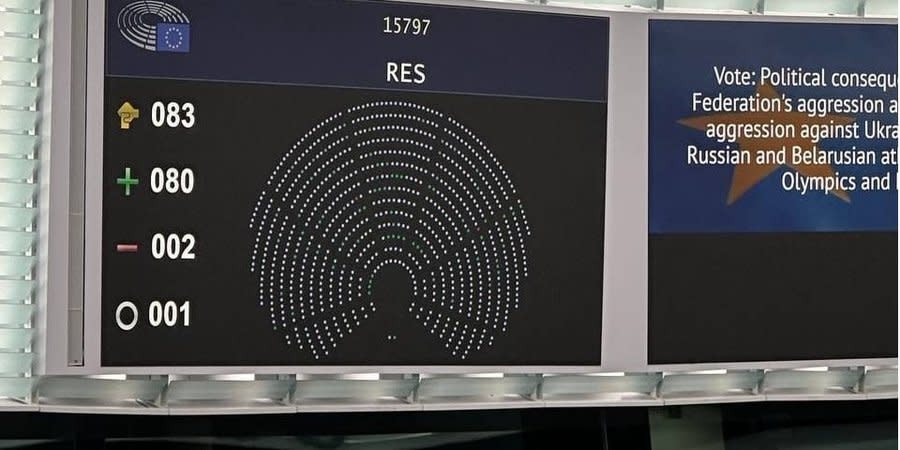PACE passes resolution on political consequences of Russia's aggression against Ukraine

The Parliamentary Assembly of the Council of Europe (PACE) has adopted a resolution on the political consequences of Russia's aggression against Ukraine, Maria Mezentseva, the head of the Ukrainian delegation to PACE, said on June 22.
The resolution was passed with 80 votes in favor.
Read also: Attack on Kakhovka dam is Kremlin’s response to calls for peace talks, says Ukraine’s envoy to UN
PACE also moved to fully endorse Ukrainian President Volodymyr Zelenskyy's peace plan, advocating the following measures:
Continuation and strengthening of additional civil and military aid, including re-exporting own goods.
Establishment of strategic European economic autonomy to reduce dependence on Russian oil and gas, which are often used as tools of blackmail.
Measures to prevent the resale of Russian minerals to Europe through third countries.
Expansion of the list of individuals and entities subject to restrictive measures (sanctions) in Russia, Belarus, and other countries.
Implementation of enhanced supervision mechanisms to prevent sanctions evasion.
Development of a harmonized mechanism for monitoring compliance with sanctions and tracking attempts to circumvent them, especially through the resale of goods via third countries.
Creation of a public register of companies and individuals working in support of Russian interests, particularly those aiding in evading sanctions.
Recognition of Wagner PMC and other paramilitary groups involved in Russia's invasion, including Chechen warlord Ramzan Kadyrov's detachment, as terrorist organizations.
Identification of the Russian regime as adhering to the dangerous ideology of Ruscism (Russian fascism), characterized by numerous war crimes and direct promotion of genocide.
Initiation of research into Russian colonial policies to explore past imperialist practices.
Acknowledgment of Russia's responsibility for the war crime of ecocide, manifested in the destruction of the Kakhovka Hydroelectric Power Plant to hinder the counteroffensive.
Pursuit of strategic economic independence from Russian gas and oil, which Russia exploits to advance its imperialistic geopolitical objectives.
Read also: Russia has prepared everything for terrorist attack at Zaporizhzhya NPP, warns Zelenskyy
Additionally, PACE recognizes Russia's intention to sabotage the Zaporizhzhya Nuclear Power Plant (ZNPP), thereby posing a threat to the entire continent.
President Zelenskyy warned on June 22 that Russia is contemplating carrying out an attack on the occupied ZNPP, with the aim of causing a leak of radioactivity, and has made preparations for such an act.
However, the International Atomic Energy Agency's head, Rafael Grossi, stated on June 21 that no evidence of mining at ZNPP had been observed, despite Ukrainian military intelligence chief Kyrylo Budanov's report on June 20 about Russian forces allegedly mining the cooling pond.
Grossi has cautioned that the destruction of the Kakhovka Hydroelectric Power Station and Dam could jeopardize the functioning of ZNPP, as the required water level for reactor cooling may be lost within a few weeks. Grossi's assessment following his visit to ZNPP on June 15 indicated a serious but stabilizing situation.
Read also: Situation at Zaporizhzhya NPP "extremely fragile”, warns IAEA chief
At present the water levels in the cooling pond are sufficient to sustain ZNPP operations for up to a year, according to Ukraine's nuclear operator Energoatom.
We’re bringing the voice of Ukraine to the world. Support us with a one-time donation, or become a Patron!
Read the original article on The New Voice of Ukraine
